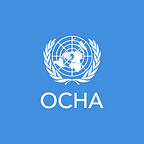The Rohingya refugee crisis 100 days on
One hundred days ago, on August 25th, more than 620,000 Rohingya started fleeing Myanmar, seeking safety in neighbouring Bangladesh. The Rohingya refugee crisis began when Myanmar security forces and civilian groups launched a violent crackdown on Rohingya families living in Rakhine State, following attacks by the Arakan Rohingya Salvation Army on border posts. The refugees joined 300,000 Rohingya refugees who had fled previous waves of violence. UN agencies and our humanitarian partners have worked around the clock to come to the aid of the Rohingya. Here we look at what has been achieved in the past 100 days, and what we need to get right over the weeks and months to come.
Deliver on funding commitments
Aid agencies released a Rohingya emergency response plan, calling for US$434 million, and donors pledged $360 million for the response at a conference in October. But as of today, only 35 per cent of that amount has been received. Without sufficient funding, the response will not be able to maintain current services or keep pace with intensifying needs. Some of the relief items provided in the early days of the response — including tents, emergency latrines and water points — already need to be rehabilitated. Despite funding shortfalls, aid agencies have managed to provide food for nearly 700,000 people, shelter kits for nearly 200,000 families and health care for more than 800,000 people, among many other activities. These are impressive achievements in a difficult situation, but they demonstrate the urgent need for donors to provide full funding for the response.
Expand and improve overcrowded camps
The Government of Bangladesh has generously allocated 3,000 acres of land to accommodate new arrivals since 25 August, in addition to refugee sites that were already in place. With the massive influx, this new land allocation has merged with pre-existing settlements to create the Kutupalong-Balukhali Expansion Site, which is now one of the most densely populated refugee camps in the world. This site is dangerously overcrowded, lacks adequate road access or infrastructure, and poses serious safety-and-protection concerns. We welcome collaboration between humanitarian partners and the Government to lay new roads and expand infrastructure, and we urge the authorities to ensure movements to any other location are voluntary.
Improve NGO registration
NGOs play a crucial role in the humanitarian response to the Rohingya refugee crisis, but many face difficulty registering with the Government to operate in Cox’s Bazar. The Government of Bangladesh needs to urgently clarify and expedite the process by which NGOs are registered and given permission to operate in Cox’s Bazar.
Support survivors of sexual abuse
Horrific levels of sexual abuse, including rape, gang-rape and torture, were part of a pattern of violence orchestrated and perpetrated by the Armed Forces of Myanmar, and by the Myanmar Border Guard Police, according to aid agencies, human rights groups and the Special Representative of the Secretary-General on Sexual Violence in Conflict, Pramila Patten. Perpetrators of abuse must be held to account for their crimes. Ms. Patten has said her office will refer the reports of persecution, sexual violence and torture to the International Criminal Court. In the meantime, funding is urgently needed to provide physical, mental-health and social-care programmes for abuse survivors and their families.
End violence and persecution in Myanmar — and prevent forced returns
It is the Government of Myanmar’s responsibility to end the violence and persecution of the Rohingya people in Myanmar’s Rakhine State. This is the fundamental pre-condition of any refugee returns from Bangladesh. The UN Secretary-General has made this call clearly and repeatedly. Returnees must be given access to basic services and livelihoods within Rakhine, as well as full respect for their human rights, including freedom of movement, while humanitarian agencies must be granted unimpeded access to all vulnerable people in Rakhine State. The safe, voluntary and dignified repatriation of refugees is critical to restore peace and stability in the region, and UNHCR’s involvement in this returns process is essential. We welcome the 23 November agreement on repatriation between the governments of Myanmar and Bangladesh as a first step, and we urge all stakeholders to maintain a focus on the integrity of the returns process.
Donate to the Rohingya crisis appeal by clicking here.
